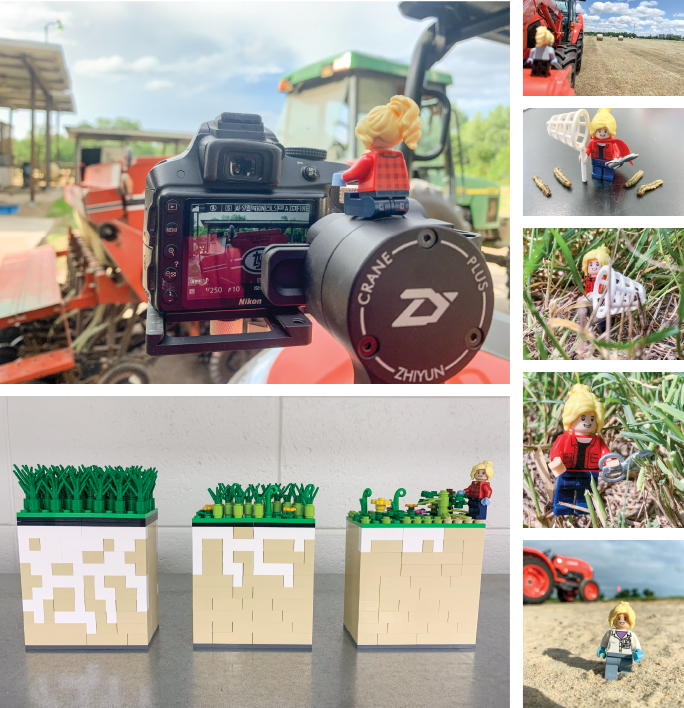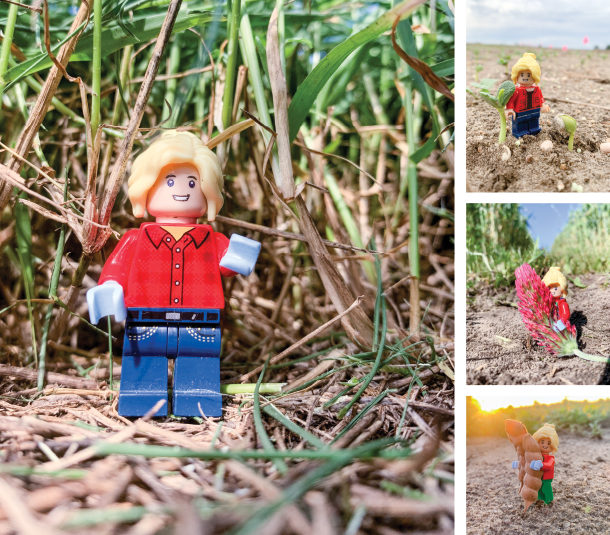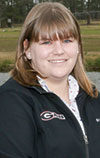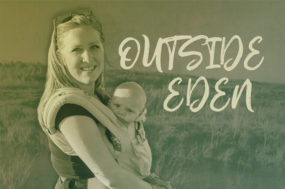Social media can be more than catching up with old friends and checking up on distant family. For Lisa Baxter at the University of Georgia – Tifton campus, social media is a creative outlet to spread extension news in unconventional ways.
Ditching the typical bulletins and flyers, Baxter has created a spokesperson to share information by utilizing one of the most classic creative building blocks around, a Lego minifigure. She shares some of her inspiration behind the idea during a Q&A session with us.
What was the inspiration behind creating the Lego Forage Specialist (LFS)?
BAXTER: LFS actually started as a joke among my friends and close colleagues. I watched the Lego 2 movie so many times in theatres that I received targeted Facebook ads to build a custom minifigure. Of course, I ordered one. When it came in the mail, I immediately sent a picture to my colleague Dennis Hancock with the caption “Move over Grassman, Lego Forage Specialist is in town now.” After a few laughs with friends, I decided to make a Facebook page so my friends could laugh along with the Lego’s “adventures.” I didn’t expect other people to interact with and start sharing the content. I have since expanded my online content to other social media channels to better showcase my forage research and extension activities. LFS has definitely became a cornerstone of my extension program.
What platforms do you currently use?
BAXTER: We are currently active on Facebook, Twitter, Instagram and TikTok. We use YouTube for other forage programs but not for LFS content.
Of those platforms, which are the most successful?
BAXTER: Success can be a difficult thing to quantify with social media. We have the most followers and receive the biggest reach on Facebook because that is where most producers are interacting with the content. Even though we see a lower local reach on Twitter, several of our administrators within the University of Georgia are active here and follow our content. Many industry collaborators are active on Instagram, and it’s allowed some unique opportunities, including a social media takeover with Kubota. TikTok can be a lot of fun, but it is also challenging since it is a video-based platform and the Lego is an inanimate object.
Is information more well received if it comes through the LFS page versus the regular extension page?
BAXTER: Social media certainly improves the reception of extension recommendations beyond more traditional channels (bulletins, newsletters, emails, etc.). I think we grew complacent with the traditional channels, and readers are overwhelmed with the amount of information available at times. Nearly everyone I know has some form of social media that they access daily (and probably more routinely than their email) – distilling critical information down to quick captions.
What are some demographics of your audience?
BAXTER: This depends on the platform, but my audience is approximately 60% female and 40% male. The majority of the audience is 25 to 44 years old. I have noticed that certain types of content will perform better on one platform than another, though. For instance, more traditional messages or research updates perform best on Facebook. Publication announcements or jokes about being an assistant professor receive more interactions on Twitter. Pictures you would label as “adorable” or “cute” will perform better on Instagram. We haven’t quite figured out TikTok yet.
What are your goals in the future for the LFS?

BAXTER: To take over the (forage) world!
BAXTER: There honestly isn’t a particular goal I am trying to achieve. Being the “manager” of LFS is a lot of fun and brings joy to a sometimes stressful career of being an assistant professor. I think we all need those short breaks with laughter during the day, and this is how I achieve that. If I can help one person each day (either with a laugh or a forage-related recommendation), then I feel that it was worth my time to post the content.
What are ways you believe other extension personnel and producers can use social media?
BAXTER: We encourage others to use social media for three reasons: to connect with producers/colleagues, to provide transparency in your research program and to build partnerships with industries. We know the majority of our friends and clientele are on social media platforms, so it is clearly an accessible tool to distribute information. I believe in transparency of my research program and post regular updates so county extension agents and producers know I am working on their problems (even if it does take years to get the answer). Finally, social media has allowed me to connect to a wide array of forage-related industries. These connections have produced several interesting and career-changing opportunities I will always be thankful for.
Photos provided by Lisa Baxter.











